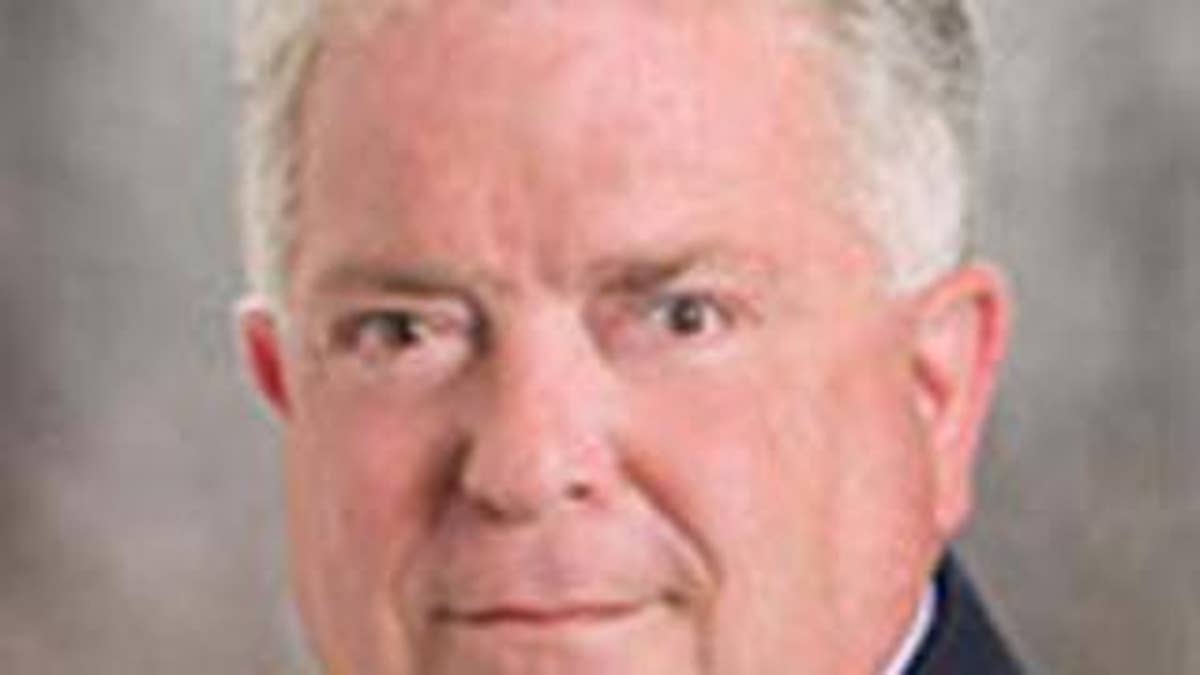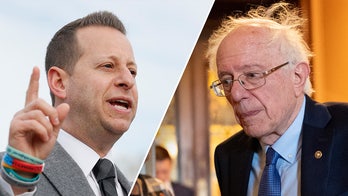
Chas Freeman, the former ambassador appointed to be the military's top intelligence analyst, has withdrawn his name following complaints from Democratic and Republican lawmakers who said he was too entangled in foreign affairs to handle the job.
National Intelligence Director Dennis Blair, who originally appointed Freeman to the post of National Intelligence Council chairman, announced the move in a statement Tuesday, saying he accepts the decision "with regret." The announcement came just hours after Blair defended Freeman before a Senate committee.
But Freeman released a lengthy statement of his own, accusing his critics of trying to destroy his credibility with libelous attacks.
"I have concluded that the barrage of libelous distortions of my record would not cease upon my entry into office," he said. "The effort to smear me and to destroy my credibility would instead continue." He said the attacks would prevent the National Intelligence Council from functioning effectively with him at the helm.
Freeman had become a political lightning rod since he was tapped two weeks ago for the post.
Lawmakers had objected to several controversial statements Freeman has made about Israel and Iraq. And they said the former U.S. ambassador to Saudi Arabia was too close to that country, as well as to China.
Freeman said he never accepted payment from any foreign government, including Saudi Arabia and China. He suggested he had fallen victim to what he called the "Israel Lobby."
"The libels on me and their easily traceable e-mail trails show conclusively that there is a powerful lobby determined to prevent any view other than its own from being aired, still less to factor in American understanding of trends and events in the Middle East," he said. "The tactics of the Israel Lobby plumb the depths of dishonor and indecency and include character assassination, selective misquotation, the willful distortion of the record, the fabrication of falsehoods, and an utter disregard for the truth."
Freeman has in the past compared Israelis to "colonists" and accused the United States of bringing the "Palestinian experience" of humiliation to Iraq.
In his resignation statement, Freeman said: "There is a special irony in having been accused of improper regard for the opinions of foreign governments and societies by a group so clearly intent on enforcing adherence to the policies of a foreign government -- in this case, the government of Israel."
Lawmakers had questioned Freeman's fitness for the intelligence post over the past two weeks, leading the inspector general for the director of national intelligence to agree to examine Freeman's foreign ties. At the time, Blair said the inquiry would put to rest any questions about Freeman.
But a number of top lawmakers, most of them Republicans, suggested Freeman's conflicts could be disqualifying.
Among their concerns were:
-- Freeman's role as president of the Middle East Policy Council, a think tank they say received funding from the Kingdom of Saudi Arabia. Fuad A. Rihani, a consultant for the bin Ladin family's Saudi BinLadin Group, also sits on the group's board of directors -- another trouble spot for Freeman's critics. And they complained the council did not disclose its donors.
-- Freeman's role on a board for the Chinese National Offshore Oil Corporation, owned by China, and that company's reportedly $16 billion agreement with Iran to develop a gas field in the Middle Eastern country.
The controversy surrounding Freeman heated up last week when Michigan Rep. Pete Hoekstra, ranking Republican on the House Intelligence Committee, said he wanted Freeman to withdraw his name. That was after he wrote to Blair on Monday expressing his doubt that Freeman could restore credibility to the national intelligence estimates, or NIEs, the intelligence reports Freeman would be involved in producing.
"I am ... deeply concerned that an individual who reportedly holds radical and extreme views would be chosen to oversee NIEs, the IC's most comprehensive and authoritative intelligence assessments," Hoekstra wrote, according to a copy of the letter obtained by FOXNews.com.
Hoekstra applauded Freeman's decision to withdraw his name, but called the process "yet another breakdown in the Obama administration vetting."
As NIC chairman, Freeman would have been responsible for drawing from assessments from all 16 intelligence agencies and formulating mid-and-long-term strategic intelligence plans.
More than a dozen lawmakers had already called for an investigation by the time Blair's inspector general, Edward Maguire, decided to launch one. Democratic Rep. Steve Israel, N.Y., first urged Maguire to launch a probe in a letter Saturday. Rep. Mark Kirk, R-Ill., and Israel also asked Maguire to look into Freeman's work with the Chinese National Offshore Oil Corporation and its deal with Iran.
Blair argued that Freeman's rich background would make him an asset to the intelligence community and other foreign policy analysts had dismissed the criticism of him as a smear campaign.
Freeman has a formidable resume of foreign policy positions that include U.S. ambassador to Saudi Arabia under George H.W. Bush and assistant secretary of defense for international security affairs -- a position that earned him public service awards for his role in creating a NATO-centered post-Cold War European security system. Freeman also served as Richard Nixon's chief translator in China in 1972.
Blair's office said he did not seek White House approval for the appointment, which did not require Senate approval.
But statements the former ambassador made over the last three decades on U.S. peace efforts in the Middle East and Iran's threat to the international community had also prompted some to question his objectivity in a role that requires it.
In a speech to the Pacific Council on International Policy in October 2007, Freeman said the U.S. has "abandoned the role of Middle East peacemaker to back Israel's efforts to pacify its captive and increasingly ghettoized Arab populations."
"We wring our hands while sitting on them as the Jewish state continues to seize ever more Arab land for its colonists," he said.
In reference to the Iraq war, Freeman said, "Now the United States has brought the Palestinian experience -- of humiliation, dislocation, and death -- to millions more in Afghanistan and Iraq.
"By invading Iraq, we transformed an intervention in Afghanistan most Muslims had supported into what looks to them like a wider war against Islam. We destroyed the Iraqi state and catalyzed anarchy, sectarian violence, terrorism and civil war in that country."
Also, The Weekly Standard recently posted a 2006 e-mail from Freeman to a listserv in which he said the Chinese government was "overly cautious" in its effort to "intervene on a timely basis to nip the demonstrations in the bud" during the 1989 Tiananmen Square protests.
FOX News' James Rosen contributed to this report.




